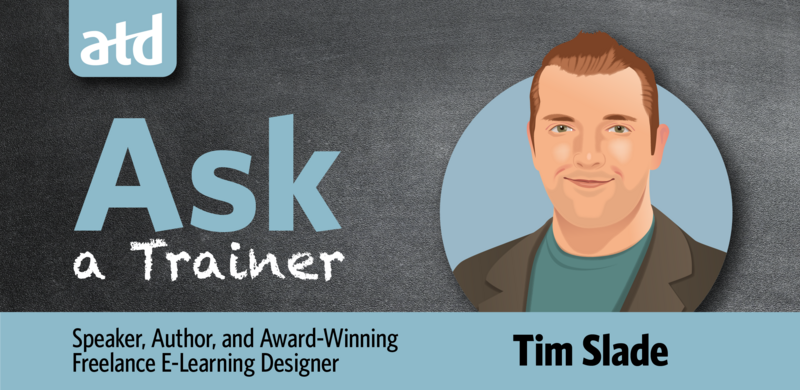ATD Blog
Ask a Trainer: How Can I Help Promote a Buyer-Centric Selling System?
Wed Sep 23 2020

In this week’s Ask a Trainer guest post, Mike Kunkle offers advice for sales enablement professionals who are helping their sales teams become more buyer-centric. Mike is the author of The Building Blocks of Sales Enablement, published by ATD Press in September 2021.
Dear Mike,
I work in sales enablement, and many of the sales reps I work with are having a hard time adjusting to selling virtually, especially since the pandemic means that most buyers have reduced budgets. I’ve also noticed that buyers seem increasingly skeptical of sales reps. I’d like to help my sales force move toward a buyer-centric selling system, but that feels like a big undertaking. What do I need to know to help move us in a buyer-centric direction?
There is a lot to unpack in that question. Let’s start with this. Whether you’re selling virtually with video, on the phone, in-person, through email, or by carrier pigeon, it’s critical to make the evolution to buyer-centric selling. B2B buying research continually indicates that buyers are disappointed with their sales experience, and especially now, with increased economic pressures, we have to change that. Buyer-centric selling is about teaching sellers to sell the way modern buyers want to buy. It's a respectful, consultative, trust-building, value-focused, outcome-oriented sales methodology.
As an example, let’s take the phrase “overcoming objections,” which isn’t a phrase I like to use but is a common one in sales. Think about that for a second. What image does that create in your mind? Could it be more combative? Do you know anyone who wants to have their “objections overcome?” Buyer-centric selling acknowledges that buyers are going to have concerns, and you have to be able to understand those concerns, clarify them, acknowledge them, respond to them in some way, and check in to see whether that helps the buyer get past that concern. This is just one example of how we need to evolve and elevate the sales profession.
Buyer-centric selling is not about being subservient to your buyers. It is a servant mindset but not subservient. It’s about operating in your buyers’ best interests. Sometimes, that may even mean that you need to question their thinking and challenge them or push back a bit. You could share perspectives that are different than theirs, explaining why you think the way you do and how you've seen the type of problems they're facing be solved or avoided. You're always doing it with their best interests at heart, with good intentions and with integrity.
These salespeople are also problem solvers, not product pitchers. Buyer-centric sellers pay attention to what matters most to the different buyers they're working with, and they personalize how they communicate value. They message to buyers based on what these buyers value and what they want to accomplish. It's different from what the average salesperson does, where they have their features and benefits, or their product, or their value proposition, and they are just product pitching or feature dumping. They do it the same way every time, hoping for a better result.
When you shift to this buyer-centric approach, it helps salespeople earn their buyers’ trust. They become real problem-solvers for the buyers and their customers.
As a sales enablement professional, you must help your sales force turn that corner and adopt a buyer-centric approach. The salespeople who use a one-size-fits-all approach are the ones who will eventually be replaced by technology. The salespeople who truly can sell consultatively, in a buyer-centric way are the ones who are going to thrive.
_
_
Learn more about buyer-centric selling and the building blocks for sales enablement from Mike Kunkle on the ATD Accidental Trainer podcast. His episode will air on September 23, 2020.
_
_
If you have a question for Ask a Trainer, send it to [email protected]. You can find answers to previous questions by visiting the Ask a Trainer hub. Tim will be back next week to tackle a new question.
We welcome your comments and engagement on these posts. All posts are reviewed to ensure appropriateness based on ATD’s requirements for postings in our online communities.
Please note: Content shared in this column is provided by the author and may not reflect the perspectives of ATD.
You've Reached ATD Member-only Content
Become an ATD member to continue
Already a member?Sign In

